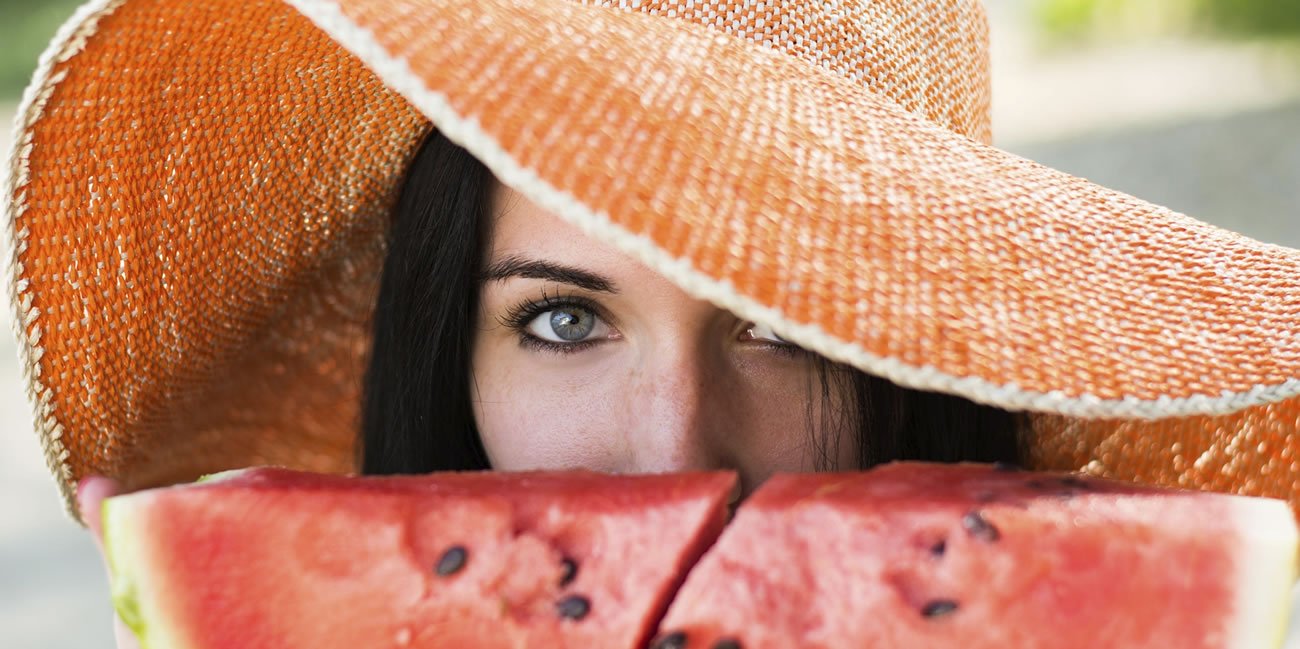Foods That Promote Eye Health
Are there foods that promote eye health? Yes, and that’s a surprise for many people. We often think of vision loss – problems like diabetic retinopathy, cataracts, and macular degeneration – as a consequence of aging or heredity. But science is now finding that there’s a lot we can do with our diets and lifestyles to help keep our vision strong.

Foods That Promote Eye Health: Diabetic Retinopathy
Having high glucose levels and pre-diabetes or diabetes can seriously damage the small blood vessels that feed the eye’s retina, which can reduce retinal function and lead to progressive loss of vision to the point of blindness. In America, there are roughly 25,000 new cases yearly.
But there is good news. When you take good care of your blood glucose and either prevent diabetes’ onset or manage it well, there’s an excellent chance you can avoid diabetic retinopathy, and certainly, the many other devastating consequences of diabetes, including heart attacks, strokes, poor wound healing, and kidney failure.
Diets and lifestyles that have proven particularly beneficial in lowering blood glucose and preventing/controlling diabetes are those, like the Pritikin Eating Plan, that include plenty of nutritious, low-calorie-dense foods like:
- Vegetables
- Whole fruit (not fruit juice)
- Beans/legumes
- Minimally processed whole grains, preferable those cooked in water, like oatmeal, whole wheat pasta, quinoa, brown rice, and barley
- Nonfat dairy foods
- Egg whites, and
- Modest amounts of lean meat choices.
Foods That Promote Eye Health: Cataracts
Cataracts are cloudy areas in the lens inside the eye. They are very common in older people. By age 80, more than half of all Americans either have a cataract or have had cataract surgery.
In addition to aging, other risk factors for cataracts include:
- Certain diseases such as diabetes.
- Personal behavior such as smoking and alcohol use.
- The environment, particularly prolonged exposure to sunlight.
To protect your vision, the National Eye Institute, part of the National Institutes of Health, recommends that smokers quit and that all of us wear sunglasses and hats with brims to block ultraviolet sunlight.
In terms of diet, the National Eye Institute points out that good nutrition, particularly green leafy vegetables and fruit, can reduce the risk of age-related cataracts. Research suggests the same may be true for glaucoma.
Foods That Promote Eye Health: Age-Related Macular Degeneration
Age-related macular degeneration or AMD, as the name suggests, is linked to the aging process and damages the macula, the central area of the retina responsible for fine vision. Degeneration of the macula limits the ability to read, drive, recognize faces, and perform any activities that rely on precise vision.
As our population in America grows older and lives longer, the number afflicted with AMD is now approaching 2 million, with 8 million more at risk.
AMD is the leading cause of blindness in the U.S. Nevertheless, studies indicate that a Pritikin-style diet, especially one focused on fish rich in omega 3s and the antioxidants found in leafy greens like kale, spinach, chard, and collard greens, may significantly reduce the incidence of AMD.
In some instances, to be sure, age and heredity overcome even the best diets and lifestyles, and early or intermediate stage of AMD sets in. In such cases, the Age-Related Eye Disease Study (AREDS-2) conducted by the National Institutes of Health indicates that the addition of a dietary supplement enhances the benefits of a healthy lifestyle. The supplement, which contains vitamins C and E, zinc, copper, lutein, and zeaxanthin, appears to reduce by 25 to 30% the likelihood of early or intermediate AMD progressing to the advanced stage, where vision becomes noticeably reduced, limiting normal activities.
Dr. Emily Chew, study chair for AREDS, stresses the importance of diet in reducing the onset of AMD, plus the value of the AREDS supplement in possibly slowing the progression of the disease.
Lifestyle Actions and Foods That Promote Eye Health: 6 Key Tips
Summing up, here are 6 key dietary and lifestyle actions that can help protect your vision:
- If you smoke, quit. Your vision is just one more reason to stop smoking.
- Wear sunglasses that block both UVA and UVB rays, and use protective lenses to avoid work and hobby related injuries.
- Inform your primary care physician and vision specialist of any family history of eye disease.
- Get yearly dilated eye exams to catch eye diseases early, before vision loss is apparent, and to halt or slow progression.
- Eat a healthy, Pritikin-style diet, emphasizing fruit, dark leafy greens and other vegetables, beans and legumes, whole grains, and omega-3-rich fish to help prevent or control AMD, diabetic retinopothy, glaucoma, and cataracts.
- Maintain a healthy weight with diet and exercise to avoid diabetes and related eye problems.